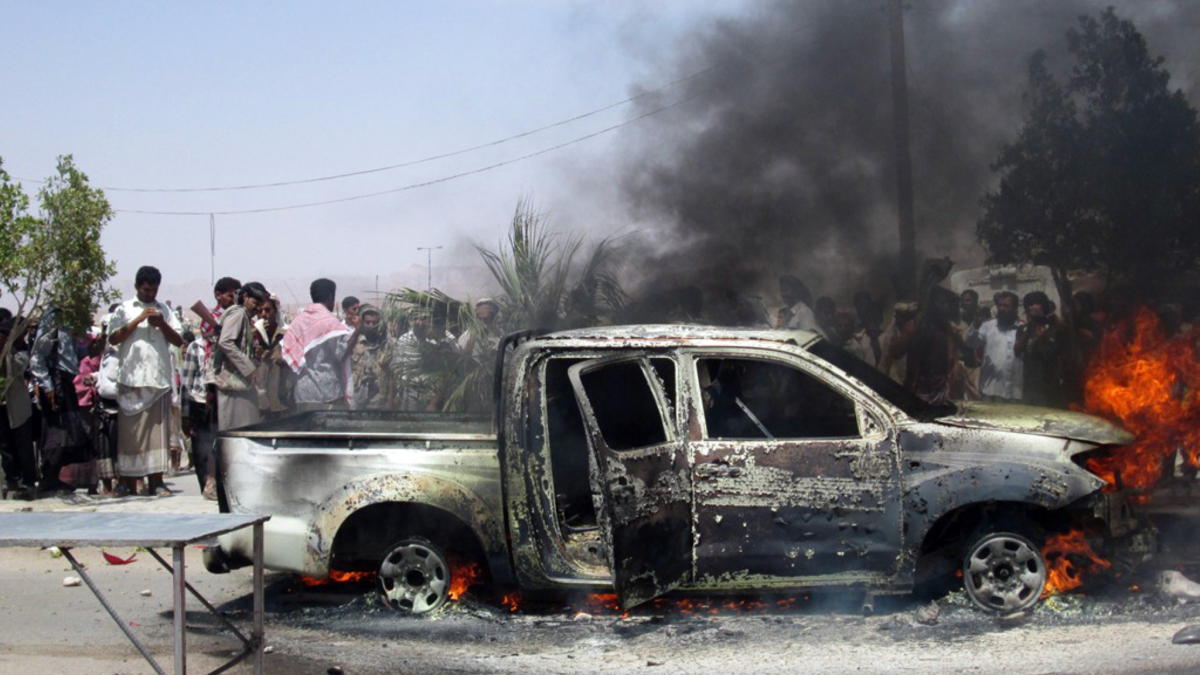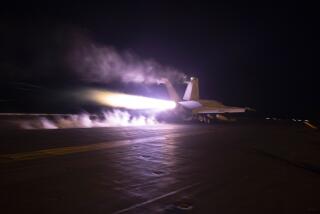Yemen military officers taken hostage in suspected Al Qaeda assault

SANA, Yemen -- In the latest audacious strike by suspected Al Qaeda militants in Yemen, attackers on Monday stormed a military headquarters in the country’s southeast, killing at least five soldiers and army officers and taking dozens more hostage, security officials said.
The Yemeni government sent in special forces to seal off the area, and reportedly opened talks with the hostage-holders. About 70 military personnel, including the base’s commander, were believed held captive.
The overrunning of the military compound in the port city of Mukla, in Hadhramout province, comes amid a drumbeat of attacks inspired or carried out by Al Qaeda in the Arabian Peninsula, as the Yemen group is known. On Sept. 20, suspected Al Qaeda militants killed more than 50 government soldiers in a series of bombings in a nearby southern province.
In a token of how seriously Al Qaeda in the Arabian Peninsula is taken as a threat, the United States in August temporarily closed about two dozen diplomatic missions and put out a rare worldwide travel alert after intercepting communications about what was believed to be an imminent attack. None materialized.
The organization claimed responsibility for a failed Christmas 2009 attempt to down a Detroit-bound airliner with a bomb concealed in the attacker’s underwear, and a foiled plan the following year to plant explosives-laden packages aboard air freight flights.
Jumping into a power vacuum left when Yemen’s longtime autocrat, Ali Abdullah Saleh, was ousted in 2012 amid a wave of popular uprisings across the Arab world, Al Qaeda’s Yemen affiliate swiftly moved to establish a sphere of influence in the south. Yemen is impoverished and largely lawless, but it is considered strategic due to its proximity to major oil shipping routes.
Although driven from many of their southern strongholds, Al Qaeda-affiliated militants have proved adept at pinpointing weaknesses on the part of Yemen’s security forces. Over the past year and a half, they have assassinated a number of senior military officials with bombs and in ambushes.
Officials cited by the Associated Press said the base that was hit in Monday’s attack was supposed to have been guarded by a series of checkpoints, but that they did not appear to have been manned when the assailants struck.
Security officials said the attack had the hallmarks of an inside job. According to some reports, the squad of militants disguised themselves as security personnel, using confusion to buy enough time to quickly overpower defenders. Witnesses said the attack was launched with explosives followed by a firefight.
Militants in Yemen have frequently been targeted in U.S. drone strikes, but the accelerating American campaign has so far failed to neutralize them. Analyst Saeed Obaid al-Jamhi, who studies Islamist groups and has written a book about Al Qaeda’s Yemen branch, said the group has showed a stubborn resilience in the face of moves against it.
“They are still strong and continue to carry out operations in many areas,” he said.
ALSO:
Chemical inspectors arrive in Beirut en route to Syria
Iran foreign minister talks conciliation, calls for end to sanctions
Iranian-born businessman arrested in Israel, suspected of spying
Special correspondent Ali reported from Sana and staff writer King from Cairo.
More to Read
Start your day right
Sign up for Essential California for news, features and recommendations from the L.A. Times and beyond in your inbox six days a week.
You may occasionally receive promotional content from the Los Angeles Times.






